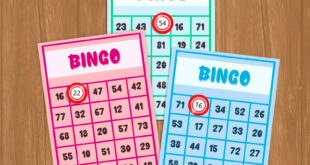What is entertainment? Out of curiosity, I decided to Google the word “entertainment.” What does my computer think I’m looking for with the word?
The top two results are listed below. The other options Google provided me with were variations of either the one or the other.
1. www.entertainment.com/All-Books-$8.99 All Coupon Books Now $8.99. Plus Free Shipping. Sale Ends Soon!
2. www.eonline.com/ Your source for entertainment news, celebrities, celeb news, and celebrity gossip. Check out the hottest fashion, photos, movies and TV shows!
I deduced from these search results that Google thinks entertainment is something to buy with coupons, or else it revolves around the public lives of celebrities or the fictional lives of characters in a movie or T.V. show.
Has our enjoyment as a society really been boiled down to that of watching real and fictional people live life? Is entertainment something that we must purchase?
My computer (Google) also gave me these definitions for “entertainment” (when I asked specifically for a definition):
- The action of providing or being provided with amusement or enjoyment
- An event, performance, or activity designed to entertain others
- The action of receiving a guest or guests and providing them with food and drink
It is interesting to look at the two words provided in the first definition of entertainment: amusement and enjoyment. Breaking down the words into their Latin roots…
Amuse: Muse means to think/ponder. ‘A’ in front of a word is a negation of what follows. Therefore, a-muse means to not-think. This word occurs twice in the Bible: Judges 16:25-27. Both verses use the word in regards to the Philistines desiring to be amused by Samson after they had bound and blinded him.
Enjoy: En in front of a word means in. Therefore, en-joy means to be in-joy. The Bible uses the word enjoy 21 times and the word joy 227 times. These words are connected to things of God and are independent of circumstances.
These definitions of amuse and enjoy would suggest that when we are being entertained, we are either not thinking, or we are in a state of joy.
Going back to my computer’s programmed perception of entertainment, I ponder a couple of questions: Must entertainment be bought? Does my entertainment revolve around watching the lives of others?
In terms of being amused, I do realize that we all have times in which our heads hurt, we’re tired, and we really don’t want to think. Like many people, I am especially susceptible during these moments to the amusement offered in tabloids or online about the comings and goings of “pretty-people” (celebrities). I am also fascinated by the lives of fictional characters, in cinema, television, and books. The danger, however, of being involved in activities wherein we are not engaging our mind, is that we are still being influenced. Our minds are being penetrated. We should be especially careful, then, to choose in advance which entertainment to engage in during our times of a-musement.
I find that the second word in that definition, enjoy, contains a much more encouraging idea. I realize I am much more fulfilled in the activities which entertain me by bringing me joy. The moments I remember most are the ones that have lifted my thoughts to the things of God. Sometimes these moments have come through what I’ve read in a book. Sometimes they have come by watching and meditating on an inspirational part in a movie. Often, they come through the simple every-day moments of life and conversation. These moments arrive when my mind and spirit are engaged and connected to the Life of God.
Amusement and Joy…Which is more Biblical? Would God have us be involved in an activity in which we are not thinking, or in an activity in which we are in joy? May we judge wisely the entertainment we choose, and may it bring us joy and lift our minds to the life and truth of God.
 The Bottom Line, Ministries Christian News, Articles, & Poetry
The Bottom Line, Ministries Christian News, Articles, & Poetry 




Great article Jenny! It was very interesting. I thoroughly ‘en-joyed’ learning the etymology of, the contrast between the two words, and when they were used in the Bible.